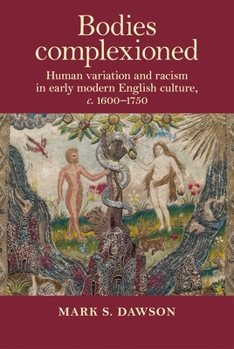Bodies Complexioned: Human Variation and Racism in Early Modern English Culture, C. 1600-1750
Select Format
Select Condition 
Book Overview
Bodily contrasts - from the colour of hair, eyes and skin to the shape of faces and skeletons - allowed the English of the seventeenth and early eighteenth centuries to discriminate systematically among themselves and against non-Anglophone groups. Making use of an array of sources, this book examines how early modern English people understood bodily difference. It demonstrates that individuals' distinctive features were considered innate, even as discrete populations were believed to have characteristics in common, and challenges the idea that the humoral theory of bodily composition was incompatible with visceral inequality or racism. While 'race' had not assumed its modern valence, and 'racial' ideologies were still to come, such typecasting nonetheless had mundane, lasting consequences. Grounded in humoral physiology, and Christian universalism notwithstanding, bodily prejudices inflected social stratification, domestic politics, sectarian division and international relations.
Format:Paperback
Language:English
ISBN:152616390X
ISBN13:9781526163905
Release Date:July 2022
Publisher:Manchester University Press
Length:280 Pages
Weight:0.88 lbs.
Dimensions:0.6" x 6.1" x 9.2"
Customer Reviews
0 rating





